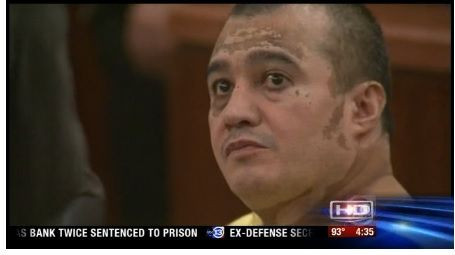
Edgar Tamayo Arias' lawyers have filed a lawsuit in Federal Court against the Texas Board of Pardons and Governor Rick Perry, whom they accuse of 'Inadequate Clemency Proceedings.' Sandra Babcock, Tamayo Arias' lawyer and professor at Northwestern University's Law School stated that "The process of Clemency undertaken by the Texas Board of Pardons is surrounded by secrecy. Its members have refused to come together to discuss the petition brought forward by our client."
Edgar Tamayo Arias' legal team has stipulated that the Texas Board of Pardons has violated its own rules of a "just and legal process" in the proceedings: specifically, the Board is accused of refusing the defence team access to key documents presented by the prosecution which opposes Mr. Tamayo Arias' bid for clemency. The defence attorneys have asked for a suspension of 150 days in the hopes of halting the execution scheduled for January 22nd.
Babcock and her team had placed a petition for Executive Clemency to the Board of Pardons on the 11th of December 2013, however, the seven members of the Board have not voted on the matter. Babcock argued that the process of Clemency is the only forum which could grant Tamayo his right to revise the consequences of the "negligence of the state of Texas" by not informing him of his right to seek consular assistance at his arrest in 1994 for the murder of Police Officer Guy Gaddis in Houston.
"Mr. Tamayo was never informed of his right to contact the consulate, as is stipulated in the Vienna Convention on Consular Relations; and, unlike other Mexicans already executed, he has not been granted any form of judicial review," Ms. Babcock argued. She also indicated that the Attorney General as well as Governor Perry had promised a review of cases like Mr. Tamayo's but "until now they have not kept their promise." The lawsuit filed today seeks to stop the Board from a vote before granting the defends team access to the prosecution's documents.
The lawsuit also seeks to prevent the Governor from making a decision based on a recommendation by the Board, which, according to he legal team, was adopted following "an arbitrary process." Mr. Tamayo's legal team point to the accused's mental retardation and brain damage that the Mexican has suffered from since teenage hood which, according to a law instated by the Supreme Court in 2002 would make him ineligible for execution.
Tamayo would be the third Mexican executed on U.S. soil following the Internation Court of Justice's order to the US to revise cases of Mexican citizens condemned to death whose right for consular assistance had been violated.
© 2025 Latin Times. All rights reserved. Do not reproduce without permission.




